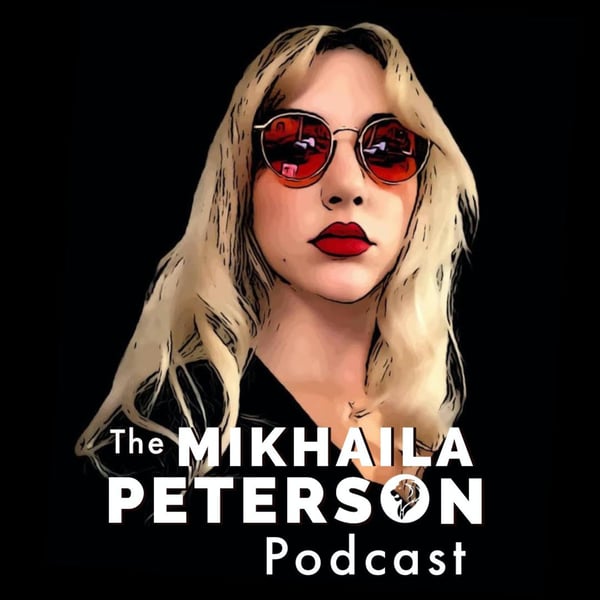Opposing Views: Assisted Dying – Mercy or Murder? | Dr. Ellen Wiebe & Dr. Mark Pickering EP 182
The Mikhaila Peterson Podcast
Mikhaila Peterson
4.6 • 2.1K Ratings
🗓️ 22 February 2023
⏱️ 68 minutes
🧾️ Download transcript
Summary
In this episode of the Opposing Views series, I spoke with Dr. Ellen Wiebe and Dr. Mark Pickering about the ethics and legalities behind medical assistance in dying (MAID). We talked about the arguments for and against making MAID available, which demographics are asking for it, the potential risks, and which countries allow it.
Dr. Ellen Wiebe is a clinical professor in the Department of Family Practice at the University of British Columbia. After 30 years of full-service family practice, she now restricts her practice to women’s health and assisted death.
Dr. Mark Pickering is a general practitioner of family medicine. His clinical work is mainly in prisons and other secure environments, and he is also head of the Christian Medical Fellowship in the UK.
If you enjoyed this conversation, please consider subscribing :)
–Links –
Dr. Ellen Wiebe’s Website: http://hemlockaid.ca
Dr. Mark Pickerings Resources: https://www.carenotkilling.org.uk
For Clinicians: https://ourdutyofcare.org.uk
For Politicians: https://www.dyingwell.co.uk
Follow Me On:
All Platforms: https://linktr.ee/mikhailapeterson
Facebook: https://www.facebook.com/mikhailapetersonpodcast
Twitter: https://twitter.com/MikhailaFuller
Instagram: https://instagram.com/mikhailapeterson
TikTok: https://www.tiktok.com/@mikhailapeterson
Telegram: https://t.me/mikhailapeterson
#AssistedDying #Dr.EllenWiebe #MikhailaPetersonPodcast #Dr.MarkPickering
Transcript
Click on a timestamp to play from that location
| 0:00.0 | You're not saying, no, no, don't feel like that, you know, you're not a burden, we will look after you whatever it takes, suddenly you change it, you say, maybe you're right, maybe you are a burden, what does it do for suicide prevention, and mentally ill people to change from saying, whatever happens we will always support you to insert circumstances we will actually help to kill you, that's crazy. |
| 0:22.5 | This may that must be a hard practice to be in, no, it's just the best I've got ever done in a section, honor to be part of somebody's, uh, doubts really rib. |
| 0:34.5 | Dr. Ellen Weeb, welcome to my podcast. Thank you for having me. |
| 0:46.5 | Thank you very much for joining me. Before we get started, can you give me a brief background about who you are and what it is you do? |
| 0:55.5 | I have been a family doctor for many, many, many years, and I had a full service come with practice doing everything when we were cradle to grave, and for a long time, and then I concentrated on women's health, which primarily was abortion and contraception. |
| 1:18.5 | And since our law changed in 2016, I have been providing clinical assistant acts. |
| 1:27.5 | So now I don't do any kind of practice anymore, and I just do the women's health and assisted dying. |
| 1:39.5 | Sorry, and you said, and I'm a professor of the university, and I have lots of research and have publications and teaching and that sort of thing. |
| 1:50.5 | Okay, great. You said when the law changed in 2016, so what was that law? |
| 1:56.5 | So this is the medical assistance in dying law in Canada, and that came about because of a constitutional court case, and the court decided that Canadians had the constitutional right to have an assisted up. |
| 2:14.5 | And in the particular situation of having a grievous and irremediable condition that caused unbearable suffering, and they had to be voluntary. |
| 2:29.5 | Then that was the court decision, and then the law came in, which added some safeguards that there had to be two clinicians that agreed that somebody was eligible under the law, that there had to be, you know, a waiting period and, and a witness for the consent, etc. |
| 2:53.5 | Then that law was amended in 2021, or another court case, which said that some of the safeguards did not follow the constitution and were, therefore, stuck down. |
| 3:10.5 | And the main one was that the natural death be reasonably foreseeable. |
| 3:17.5 | Now, I know that your audience aren't for countries, so I just want to compare a little bit in the US, 20% of Americans are living states where they do have assisted dying as well. |
| 3:31.5 | All of those states, except Montana, have the rule that you're expected death be within six months. |
| 3:40.5 | And ours was that their natural death must be reasonably foreseeable, and then that was stuck down, so that the idea that, you know, somebody who could expect to suffer unbearably for the next 30 years |
| 3:59.5 | also had the right to an assisted death. |
| 4:02.5 | In Australia, most of the states have assisted dying, and their laws are either at six months or 12 months, so that the expected death must be within six to 12 months. |
| 4:19.5 | And in all cases, the issue of an assisted death means that a clinician, a doctor or a nurse practitioner, and prescribed a medication that would in the death or actually gives them medication. |
| 4:38.5 | We have, in addition to our laws, we have a number of regulations and standards and guidelines that we have to follow. |
| 4:47.5 | These are through our problems, through our professional organizations by the people who license us. |
... |
Please login to see the full transcript.
Disclaimer: The podcast and artwork embedded on this page are from Mikhaila Peterson, and are the property of its owner and not affiliated with or endorsed by Tapesearch.
Generated transcripts are the property of Mikhaila Peterson and are distributed freely under the Fair Use doctrine. Transcripts generated by Tapesearch are not guaranteed to be accurate.
Copyright © Tapesearch 2025.

